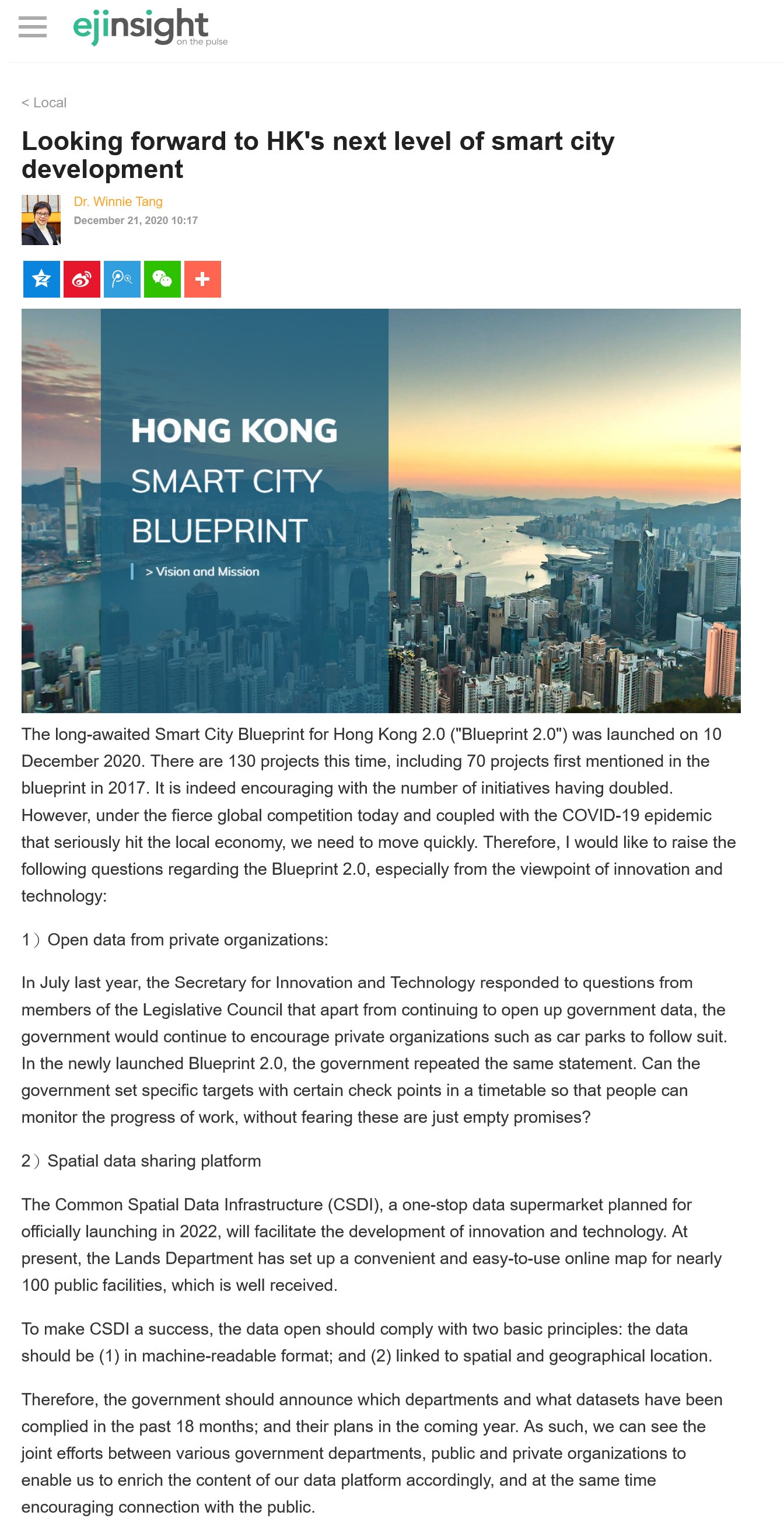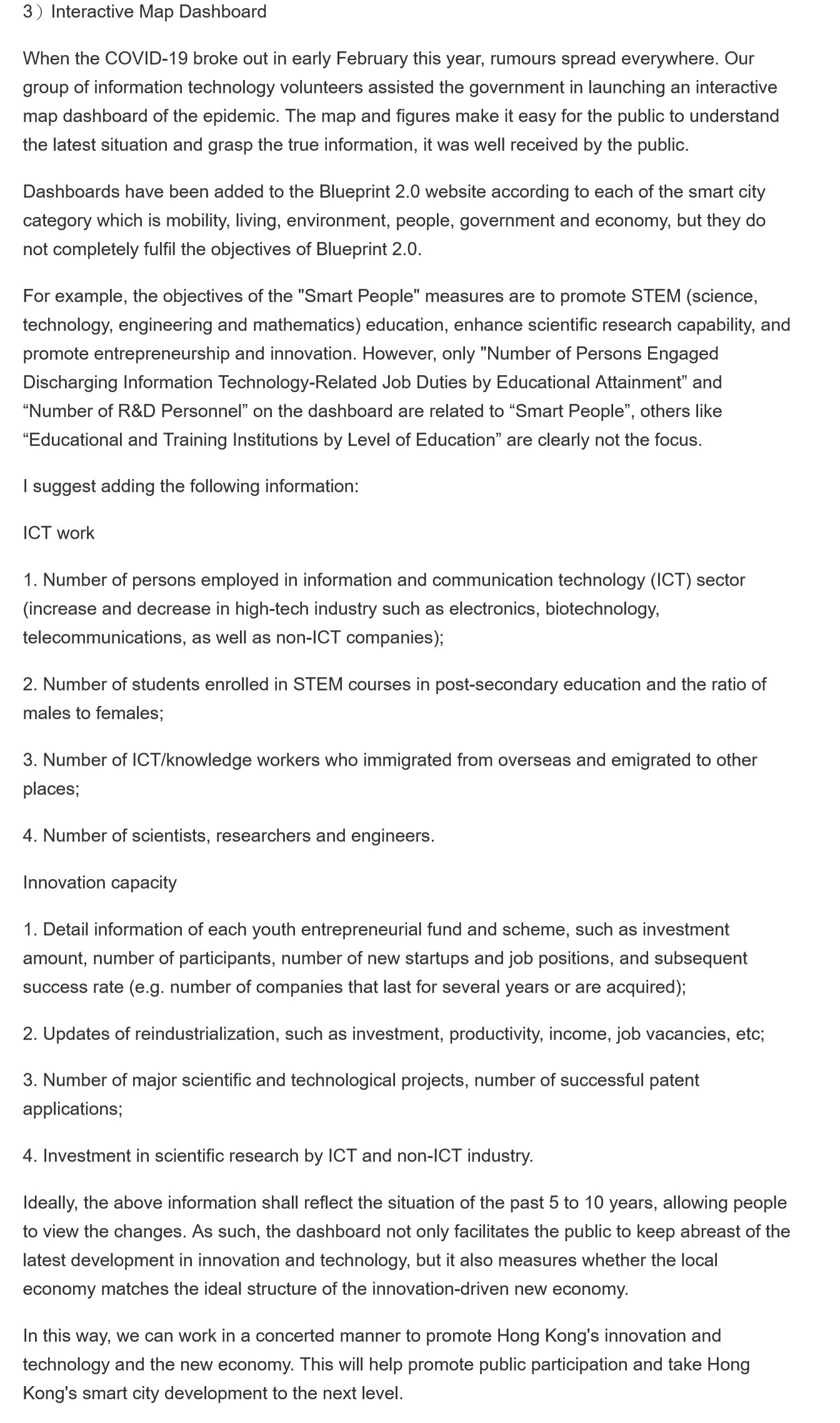網上版請按此


Dare-to-try spirit is key to FinTech hub
To strengthen Hong Kong's status as an international financial centre, it is crucial to adopt innovative financial technology (FinTech). Therefore, the government has been working hard to boost FinTech development in recent years. How has the industry responded?
According to a research report FINTECH Adoption and Innovation in the Hong Kong Banking Industry (the "Report") published by Hong Kong Institute for Monetary and Financial Research last year, 86% of the interviewed banks have implemented or plan to adopt FinTech solutions, they generally consider FinTech as a business driver, that there will be more opportunities than threats. The situation will become more obvious within the next five years. Among the different types of banking business, risk management, mortgage loans, and personal finance offer the biggest potential. Thus, most retail and virtual banks plan to establish or have established dedicated department or team in Hong Kong to promote the change.
The Report interviewed 45 financial institutions, 37 of which together manage three-quarters of the total assets of the banking industry in Hong Kong and more than 80% of total customer deposits.
The financial institutions face many obstacles to meet the change. According to the Report, the financial institutions have to cope with difficulties in ensuring cyber security, data privacy and protection, retaining and attracting talents. In addition, they have to comply with domestic as well as international regulation related to FinTech evolution, and adopt new technologies into banks' legacy IT systems. All these problems hinder the industry's switch over.
In view of this, the Hong Kong Monetary Authority has implemented several initiatives, such as the FinTech Supervisory Sandbox to allow banks to explore innovative products, and the Cybersecurity Fortification Initiative 2.0 to help the industry improve its ability to defend against cyber attacks.
Earlier this year, the government launched the Fintech Proof-of-Concept Subsidy Scheme, which encourages traditional institutions to partner with startups to test new technology, thereby enhancing the overall technological level of local financial and banking industry. Each approved project is entitled to a one-off subsidy of up to HK$100,000, the government has earmarked $10 million for the scheme.
However, the Report also found that the cooperation between banks and FinTech companies is full of challenges. First of all, there are fundamental difference in business models, IT compatibility, and corporate culture between the two parties. Nest, a startup incubator, after interviewing 15 startups for their thoughts on Hong Kong as a hub for innovation, concluded that the local banking industry is 'lacking creativity and innovative thinking' and 'resistant to change', which has become an obstacle to Hong Kong's development as a FinTech hub.
London is a veteran international financial centre. The city has second most FinTech unicorns (startups valued at least US$1 billion), after San Francisco. In the latest European technology annual report, Atomico, an international investment company mentions that the funds absorbed by London from 2016 to 2020 are three times that of Paris, the second largest capital hub in Europe. According to Jimmy Leung, Hong Kong Economic Journal columnist, London’s success should be attributed to the mature FinTech ecosystem and abundant related resources, including lawyers, accountants, consultants and various outsourcing service providers who are familiar with startups. I believe that the mentality of the industry is also very important, from the management to the frontline workers, they all dare to try.
I hope that the Fintech Proof-of-Concept Subsidy Scheme could attract financial institutions with no plans to adopt FinTech to take a leap. The overall technological level of the financial industry can then be upgraded to make us more competitive, maintaining Hong Kong's status as an international financial centre.
Dr. Winnie Tang
Adjunct Professor, Department of Computer Science, Faculty of Engineering; Department of Geography, Faculty of Social Sciences; and Faculty of Architecture, The University of Hong Kong